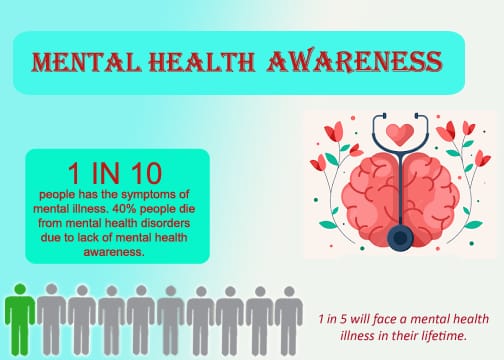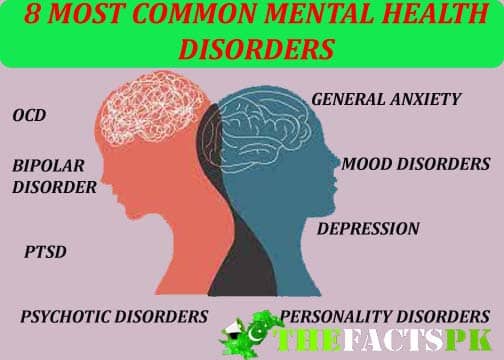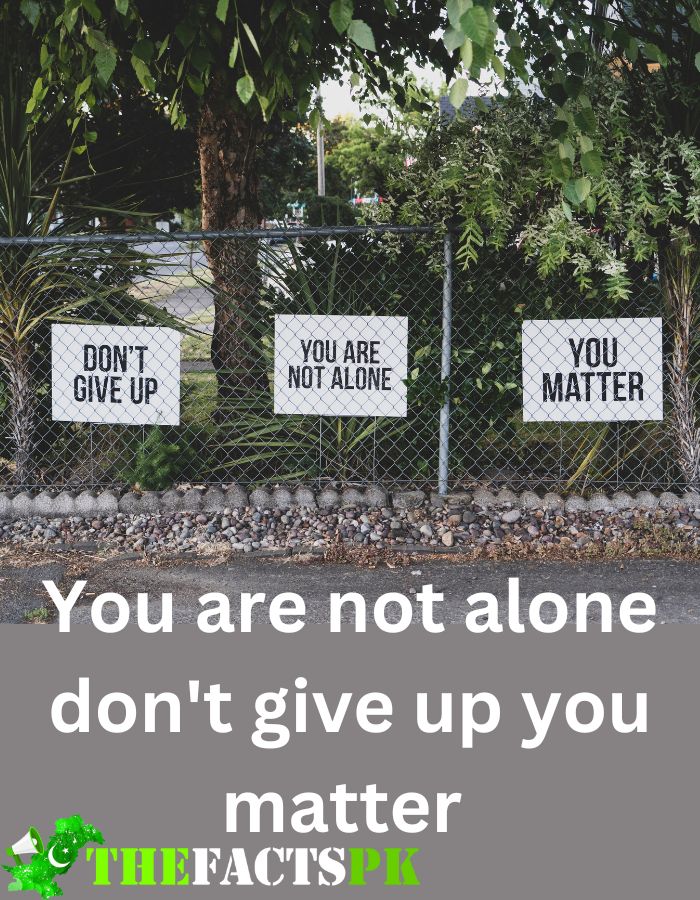HEALTH TIPS
Weight Loss 10 Proven Strategies for Effective and Sustainable Weight Loss

Discover the top 10 proven strategies for effective and sustainable weight loss in this comprehensive article. From creating a calorie deficit to seeking professional support, learn how to achieve your weight loss goals while improving your health. With valuable tips on mindful eating, exercise, and meal planning, you’ll be on your way to success.
Introduction
Weight loss is a common goal for many people, and for a good reason. Excess weight not only affects physical appearance but also increases the risk of various health issues such as diabetes, heart disease, and certain types of cancer. However, losing weight can be a challenging process, and many people struggle to achieve and maintain their desired weight. In this article, we will explore ten proven strategies for effective and sustainable weight low. This article originally written by Thefactspk.com
Create a Calorie Deficit to Weight Loss:
To lose weight, you need to create a calorie deficit by burning more calories than you consume. You can achieve this by reducing your calorie intake, increasing your physical activity, or a combination of both. A calorie deficit of 500-1000 calories per day can result in a reduce weight of 1-2 pounds per week, which is a safe and sustainable rate.
Choose Nutrient-Dense Foods:
Not all calories are created equal. To lose weight and maintain your health, you should choose nutrient-dense foods that provide a high amount of essential nutrients such as vitamins, minerals, and fiber, and a low amount of calories. Examples of nutrient-dense foods include fruits, vegetables, whole grains, lean protein sources, and healthy fats.
Control Portion Sizes:
Even healthy foods can contribute to weight gain if consumed in large portions. To control your calorie intake, you should be mindful of your portion sizes. You can use measuring cups, a food scale, or visual cues such as the palm of your hand to estimate appropriate portion sizes.
Stay Hydrated:
Drinking enough water is essential for weight loss and overall health. Water can help reduce appetite, boost metabolism, and enhance fat burning. Aim to drink at least eight glasses of water per day, and more if you are physically active or in hot weather.
Avoid Processed Foods:
Processed foods are often high in calories, added sugar, unhealthy fats, and low in essential nutrients. They can contribute to weight gain and various health issues. Instead, you should choose whole, minimally processed foods that are closer to their natural state.
Plan Your Meals:
Planning your meals in advance can help you make healthier choices and avoid impulse eating. You can use a meal planning app, a calendar, or a spreadsheet to plan your meals for the week, taking into account your calorie needs, dietary preferences, and availability of ingredients.
Practice Mindful Eating:
Mindful eating is a practice that involves paying attention to your food and the sensations in your body while eating. It can help you enjoy your food more, reduce overeating, and improve your relationship with food. To practice mindful eating, you can eat without distractions, chew your food slowly, and savor the flavors and textures.
Exercise Regularly:
Physical activity is crucial for weight loss and overall health. It can help you burn calories, build muscle, reduce stress, and improve your mood. Aim to do at least 150 minutes of moderate-intensity exercise per week, such as brisk walking, cycling, or swimming, and strength training exercises at least twice a week.
Get Enough Sleep:
Sleep is essential for weight loss and overall health. Lack of sleep can disrupt hormones that regulate appetite, increase stress, and reduce energy levels. Aim to get at least 7-8 hours of sleep per night, and establish a consistent sleep routine.
Seek Professional Support:
Weight loss can be a complex and challenging process, and you may benefit from professional support. You can consult a registered dietitian, a personal trainer, a mental health professional, or a coach to help you develop a personalized plan, overcome obstacles, and stay motivated.
Conclusion

conclusion, weight loss is a journey that requires achieving and maintaining a healthy weight requires a combination of healthy eating habits, regular physical activity, and lifestyle changes. By following the ten proven strategies outlined in this article, you can create a sustainable calorie deficit, make healthier food choices, control your portions, and stay motivated.
Additionally, mindful eating, regular exercise, and getting enough sleep can help you achieve your weigt loss goals while improving your overall health. Seeking professional support can also provide valuable guidance and accountability. With these tips and tools, you can successfully lose weight and lead a healthier, happier life.
This article cover these topics also visit our Facebook page TheFactsPk
- weight loss
- Workout
- calorie deficit
- healthy eating
- portion control
- mindful eating
- exercise
- physical activity
- meal planning
- nutrient-dense foods
- sustainable weight loss
Top Searches
- weight loss tips
- effective weight loss strategies
- healthy weight loss
- how to lose weight
- sustainable weight loss
- healthy eating habits
- exercise for weight loss
- meal planning for weight loss
- portion control for weight loss
HEALTH TIPS
Importance of Mental Health Awareness

Importance Of Mental Health Awareness
Mental health and mental illness
Over thinking and Mental health awareness is as important as physical health awareness. For physical health problem we seek guidance from a doctor and get treatment. Just like this we need to get help if we have mental health issues. Mental health awareness is something that can help the millions of people who are affected by mental health issues all over the world.
One in ten persons has the symptom of mental illness. Mental health awareness is an attempt to reduce discrimination and stigma around mental illness. For good mental health, treatment of mental illness is important. Regardless of the development in many countries people with mental health conditions are often treated with discrimination, stigma and Prejudice. Because of this, more than half of people with mental illness don’t receive help for their disorders. Checkout our health tips
Mental health and mental illness
Mental health is the state of your mind, feelings, and emotions and behavior. Mental health is always there and may be positive or negative, whereas mental illness can affects a person’s ability to function over a long period of time. Mental illness, also called as mental health disorders. Check our Facebook Page
There is no single cause for mental illness. A number of factors can be the reason behind mental disorders.
- Childhood abuse, trauma or neglect
- Bereavement (losing someone close to you)
- Depression
- Long term physical health condition
- Social isolation or loneliness
- Misuse of drug and alcohol
- Severe or long term stress
- Physical causes such as head injury
- Biological factors such as imbalance of hormones
- Discrimination(racial difference)
All of these can lead to mental illness. Mental illness doesn’t have to do anything with being weak or lazy.
Most common mental health disorders
- Anxiety
- Mood disorders
- Specific phobias
- Depression
- Bipolar
- Schizophrenia
- Post-traumatic stress disorder
- Dissocial disorders
- Eating disorders
These mental health’s have different symptoms and causes they can affect every aspect of life. The conversation about mental health awareness has never been as public, as prevalent, or as important. After all, building awareness is a critical component to learn how to take care of your mental health.

Symptoms of mental illness
Mental health awareness can help us indentify the symptoms. Mental illness symptoms can affect emotions, thoughts and behaviors. There are some symptoms of mental illness that can help us understand our mental health.
- Sleep problems
- Lack of interest
- Feeling sad or down (depressed)
- Extreme feeling of guilt
- Delusion, hallucination
- Excessive anger
- Mood changes
- Feeling anxious
- Appetite changes
Mental health awareness training
Mental health awareness training prepares people and individuals to respond properly to persons with mental health challenges and disorders, especially those with serious mental illness like schizophrenia.
Many organizations like WHO (world health organization) and BSC (British safely council) are promoting mental health awareness programs. It train people to learn how to handle worry, anxiety, anger and depression
How you can help in mental health awareness
Mental health awareness doesn’t only help you but also help your relatives, friends and family members. Knowing more about mental health disorders can help to identify the symptom of disorders. Here are some things that you can do to help.
- Learning more about mental health allows us to provide helpful support to those affected in our families and society.
- By Knowing about symptoms we can help them to seek diagnose from a psychiatrist
- Learning more about mental health allows us to provide helpful support to those affected in our families and society.
- Mental health education is crucial for caregivers, family members, employers, parents and loved ones to understand the effect that we face because of mental health
Mental health awareness can reduce suicide. We truly never know how our action affects other people, but if raising awareness can save a life we should try to do it. We can seek help from nearby institutes. We should encourage other to seek help if needed.
Ways to raise mental health awareness
There are many ways to raise mental health awareness. When it comes to mental health, May is not just a month. It’s Mental Health Awareness Month. Of course, bringing awareness to mental health illness isn’t a one-and-done task. It takes work from each and every one of us. But that doesn’t mean that Mental Health Awareness Month isn’t an important time to bring attention to the cause.
Educate yourself and others
We should educate ourselves and others about the importance of mental health awareness. Talking about mental health is difficult, but it is important to remove stigma and help those who are suffering from mental health illness.
Listen to others
People who are suffering from mental health issues may need to speak with someone who can offer hope during difficult times. Starting a conversation about mental health doesn’t mean that you have to say more about your own issues, but having a frank and honest discussion about mental health can be an amazing thing to do!
Speak to children openly about mental health
It is difficult to start conversations about mental health with children. However, it’s important to create an ongoing dialogue about mental health with children, young people and other adults. Adults can help children understand that mental illnesses are real illnesses that can be treated.
Take part in mental health training program
It is important to be aware of your mental health condition, If you’re interested in pursuing a career in mental health, there are a number of fields that offer an opportunity to provide care to those in need. Consider carrier in counseling, psychology, psychiatry, social work, or nursing.
Check your mental health
Just like physical health, taking care of your mental health is important and should be a priority. Checking your mental health can take time and it may not be easy. It can save you from many mental health issues.you can check our page for health tips to stay healthy.
Openly discuss mental health issues
Talk to those around you about how they are feeling, and take the time to truly listen. Check in regularly, especially if you know they are under stress or dealing with a mental illness.
Donate money and time
Volunteer organizations and mental health facilities are often understaffed and under-resourced, so even a small donation of time or money can make a big difference in the lives of others No matter how you choose to help, the most important thing is that you’re doing your part to support mental health awareness in your community.
HEALTH TIPS
8 Most Common Mental Health Disorders and Its Treatment


Mental Health Disorders
Mental health disorders are diverse, and their prevalence can vary depending on factors such as region, culture, and demographics. Here are some of the most common mental health disorders and their typical treatments:
Types of mental health disorders
General anxiety disorders
- Cognitive-behavioral therapy (CBT) is often used to address anxiety disorders.
- Medications like benzodiazepines or antidepressants may be prescribed in some cases.
- Relaxation techniques and lifestyle changes can help manage symptoms.
Bipolars disorders
- Mood stabilizers like lithium or anticonvulsants are commonly prescribed.
- Psychotherapy, especially psychoeducation and cognitive-behavioral therapy, is important.
- Supportive care and monitoring for mood swings are crucial.
Mood disorders
It’s important to note that mood disorders are treatable, and individuals experiencing symptoms should seek help from mental health professionals. Early diagnosis and intervention can lead to effective management and improved quality of life. Treatment plans are often personalized to the individual’s needs and may include a combination of therapy, medication, lifestyle changes, and support from loved ones.
Personality disorders
Personality disorders are a group of mental health conditions characterized by enduring patterns of behavior, cognition, and inner experience that deviate markedly from the expectations of the individual’s culture. These patterns often lead to significant distress or impairment in personal, social, and occupational functioning. Personality disorders are typically grouped into three clusters in the Diagnostic and Statistical Manual of Mental Disorders (DSM-5):
It’s important to note that personality disorders can vary in severity, and individuals may not always fit neatly into one specific category. Treatment for personality disorders often involves psychotherapy, with approaches like dialectical behavior therapy (DBT), cognitive-behavioral therapy (CBT), or psychodynamic therapy being effective for certain disorders. Medications may also be used to manage specific symptoms or co-occurring conditions.
Post-traumatic stress disorder (PTSD)
Post-Traumatic Stress Disorder (PTSD) is a mental health condition that can develop in individuals who have experienced or witnessed a traumatic event. These events are often life-threatening, extremely distressing, or involve a sense of helplessness. PTSD can affect people of all ages and backgrounds.
It’s essential for individuals with PTSD to seek professional help from mental health specialists who are experienced in treating trauma-related disorders. The choice of treatment may depend on the severity of symptoms and individual preferences. Recovery from PTSD is possible, and many individuals experience significant improvement with the right treatment and support.
Psychotic disorders
Psychotic disorders are a group of mental health conditions characterized by the presence of psychosis, which involves a significant impairment in an individual’s thinking, emotional responses, and ability to perceive reality accurately. Psychosis can manifest in various ways, including hallucinations (false sensory perceptions) and delusions (false beliefs).
Depression
- Treatment often includes psychotherapy (cognitive-behavioral therapy or interpersonal therapy).
- Medications like antidepressants (selective serotonin reuptake inhibitors – SSRIs) may be prescribed.
- Lifestyle changes, exercise, and social support are also important.
Obsessive-Compulsive Disorder (OCD)
Obsessive-compulsive disorder (OCD) is a long-lasting disorder in which a person experiences uncontrollable and recurring thoughts (obsessions), engages in repetitive behaviors (compulsions), or both. People with OCD have time-consuming symptoms that can cause significant distress or interfere with daily life.

HEALTH TIPS
Mental Health Full disclosure- a comprehensive guide to mental health.

Introduction
Mental Health is essential in all areas of our life. It is concerned with our mental, emotional, and social health and influences our behavioral patterns as well. According to Hopechest Global Mental Health Statistics Overview: 970 million people around the world struggle with some mental illness or drug abuse. 1 in 4 people will be affected by a mental illness at some point in their lives. 14.3% of deaths worldwide, or approximately 8 million deaths each year, are attributable to mental disorders.
World Mental Health Day — observed every year on October 10th — raises awareness about the significance of mental health around the world. This blog will explore the importance of mental health, the 4 main types of mental disorders, interesting mental health quotes, ways to improve mental health & examples to bring understanding to this fundamental human topic.
What Mental Health Means?
Mental health refers to someone’s emotional health which can either be good or bad. It involves everything from our ability to handle stress to our relationships with others—it’a an all-embracing definition. Good mental health is not the absence of every psychological and emotional burden; rather, it means being able to face them in a balanced manner. Note that mental health is a continuum and there are levels of health — some better than others.
What are examples of mental health?
1. Anxiety Disorders:
They encompass such things as generalized anxiety disorders, panic disorders, and social anxiety disorders, with the common feature being excessive worry and dread.
2. Mood Disorders:
Mood disorders such as depression and bipolar disorder impact one’s emotional well-being causing long-term periods of melancholy or mood disturbances.
3. Personality Disorders:
Conditions such as borderline personality disorder and narcissistic personality disorder can affect a person’s thinking, feelings, and behavior; this may result in problems with interpersonal relationships.
4. Substance Use Disorders:
These types of disorders involve misusing drugs or alcohol, which can lead to severe mental problems.
What are the 4 Types of Mental Health?
1. Emotional Well-Being:
Your emotional health revolves around being able to identify, express, and control how you react to things affecting your mental state. It boils down to acknowledging and dealing with your emotions in a positive way. Emotional well-being strength helps express feelings in more positive ways and better manage stress levels.
2. Psychological Well-Being:
This form deals with how your brain processes information. It contains elements such as cognitive abilities (e.g., thinking and reasoning skills), problem-solving, decision-making, and self-efficacy. Positive mental health equips individuals with the resilience to navigate life’s difficulties while keeping intact a sense of meaning in one’s existence.
3. Social Well-Being:
It’s about how connected you feel with others. Social health is the ability to have positive interpersonal relationships, a feeling of connectedness, and conflict resolution. Having an extensive support network & positive interpersonal experiences are important facets of mental well-being.
4. Spiritual Well-Being:
Spiritual wellness is sometimes taken for granted but is an important part in mental health. Spirituality is about meaningfulness, value orientation, and internal happiness, respectively. Higher spiritual well-being is linked to feeling more purpose in life and also has shown increased mental health as well.
How to Improve Mental Health?
Mental health improvement demands that all four archetypes addressed above be improved upon. Here are some strategies to enhance mental well-being:
1. Seek Professional Help:
If you have any mental health challenges, don’t be afraid to reach out to a therapist, counselor or psychiatrist for assistance. They can give advice, therapy, and medicine when needed.

2. Practice Self-Care:
Make time for self-care exercises — exercise, a healthy diet, enough sleep (and possibly even some relaxation techniques like meditation).
3. Build Strong Relationships:
Foster strong relationships through transparent communication, conflict resolution (and prevention), and surround yourself with uplifting people.
4. Set Realistic Goals:
Define realistic objectives that fit in with your beliefs and desires. Meeting these objectives could lift up your purpose and confidence.
5. Manage Stress:
Build up your skills on the subject; for example, learn to use time management techniques, develop mindfulness practices, and get into relaxation exercises.
6. Connect with Your Spirituality: Get to know your spiritual side, and find practices that support growth and fulfillment in yourself.
Mental Health Quotes
- “The greatest glory in living lies not in never falling, but in rising every time we fall.” – Nelson Mandela
- “You are not your illness. You have an individual story to tell. You have a name, a history, a personality. Staying yourself is part of the battle.” – Julian Seifter
- “Mental health…is not a destination, but a process. It’s about how you drive, not where you’re going.” – Noam Shpancer
- “You don’t have to be positive all the time. It’s perfectly okay to feel sad, angry, annoyed, frustrated, scared, or anxious. Having feelings doesn’t make you a negative person. It makes you human.” – Lori Deschene

Conclusion
The mental health awareness of our mind is something we cannot ignore. World Mental Health Day is an important reminder to put your mental health first. Identifying different kinds of mental health and reaching for help if we need it; incorporating new techniques to improve our mental wellness and leading more gratifying lives. As these earlier citations suggest, it’s alright to encounter obstacles, just as significant is overcoming them and reaching towards health.















